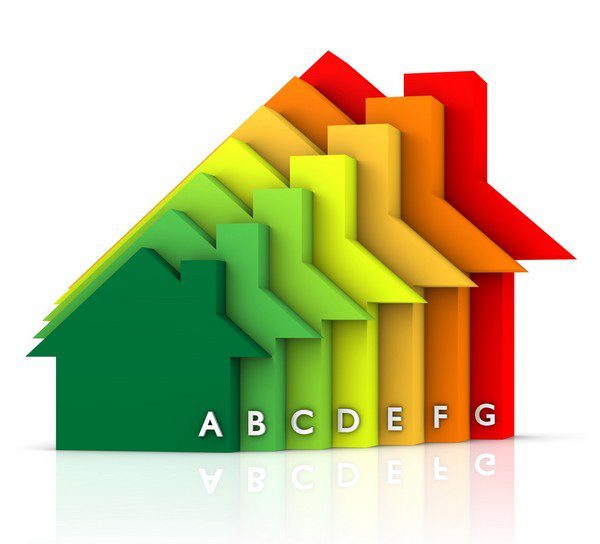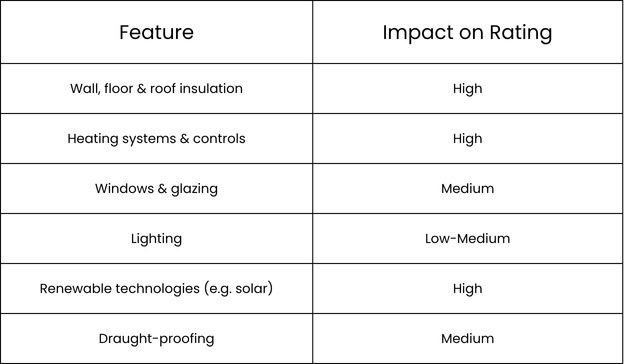
Understanding EPC Ratings and What They Mean for Your Property
Trusted and Cared Across London
Our comprehensive services are designed to address a wide range of issues promptly and effectively. From minor repairs to major installations,
Our team of skilled professionals is equipped to handle it all.
An in-depth guide for landlords, agents, and property managers

What Is an EPC and Why Should You Care?
An Energy Performance Certificate (EPC) is not just another piece of paperwork. It’s a mandatory document that measures the energy efficiency of a property. The rating — graded from A (most efficient) to G (least efficient) — gives landlords, tenants, buyers, and agents a snapshot of how energy-friendly a property is, and how much it will likely cost to heat and power.
In short:
✔ A high EPC = lower energy bills, greater tenant appeal
✘ A low EPC = costly inefficiencies and potential legal risks
EPCs: The Legal Backbone of Energy Efficiency
Under the Energy Performance of Buildings (England and Wales) Regulations 2012, all rental properties in the private sector must have a valid EPC before being let. The current Minimum Energy Efficiency Standard (MEES) requires most rental properties to achieve an E rating or above.
Are New Rules Coming?
The government’s earlier proposal to raise the minimum EPC rating to C by 2025 has been postponed, with no confirmed implementation date. Although no immediate legislative changes are expected, the direction of policy remains clear: energy performance will become an increasingly regulated issue in the coming years.
At One Central, we encourage proactive planning. Forward-thinking landlords can future-proof their properties and stay ahead of potential compliance changes — without being rushed.
Why EPC Ratings Matter Beyond Compliance
Lower Tenant Turnover
Energy-efficient homes are cheaper to run — a key factor for tenant satisfaction in today’s market.
Marketability
A better EPC rating can improve listing visibility and may justify a higher rent.
Asset Protection
EPCs reveal issues (e.g., damp risk, outdated heating systems) that could lead to larger maintenance bills later.
Investment Strategy
For portfolio landlords, EPC ratings help assess where to prioritise refurbishment spend for best ROI.
Mortgage Access
Some lenders offer better rates on energy-efficient properties — an increasingly relevant point in today’s financing climate.
How EPC Ratings Are Calculated
A qualified Domestic Energy Assessor (DEA) will assess elements including:

Real-World Improvements That Make a Difference
If you’re serious about improving your EPC, here are upgrades we at One Central frequently recommend and deliver:
Cavity Wall & Loft Insulation
Affordable and highly effective — typically raises EPC ratings by one or two bands.
Replace Old Boilers
A-rated condensing boilers or renewable heating systems significantly improve performance.
Install Double or Triple Glazing
Upgrades comfort, reduces heat loss, and can dramatically improve rating in older homes.
Low-Energy Lighting Throughout
Simple swap. High ROI. Fully switch to LED with smart controls where possible.
Room Thermostats & TRVs
Add more control, reduce waste, and impress assessors with modern heating management.
Smart Controls & Energy Monitoring
Show tenants (and assessors) that the home is being managed efficiently and responsibly.
EPC Case Study: East London 3-Bed
A landlord in Hackney approached us with a low EPC rating of F. With a tenant already in situ, they were nervous about non-compliance — and more importantly, concerned about the tenant’s heating bills.
Our Upgrades:
- Loft insulation + cavity wall fill
- Boiler replacement
- Double glazing throughout
- LED lighting and TRVs
New Rating: C
✔ Property now future-proofed
✔ Tenant retained
✔ Rent increased by £200/month at renewal
EPC Ratings and HMO Licensing
If you manage or own an HMO, remember: EPCs are not just about the private rented sector. Many local authorities in London now ask for EPC certificates when applying for HMO licenses — even though technically the law only applies when a unit is self-contained.
At One Central, we understand these grey areas and work with landlords to meet both legal and practical requirements.
FAQs About EPCs
Q: Do I need an EPC for a listed building?
A: In most cases, listed buildings are exempt — but it’s not automatic. Always check with the local authority.
Q: Can I market a property without an EPC?
A: No — you must have a valid EPC at the time of marketing.
Q: What’s the average cost of an EPC?
A: Between £60–£120 depending on property type and provider. We include EPCs in many of our refurbishment packages.
How One Central Can Help You Improve Your EPC
At One Central Property Maintenance, we work with landlords, agents, and housing providers to:
Conduct property inspections
Carry out cost-effective EPC improvements
Provide landlord compliance packages
Offer full-service refurbishments and upgrades
Liaise with assessors and inspectors on your behalf
Whether you manage one flat or 100, we’ll help you plan improvements that align with your budget, timelines, and compliance needs — all without disruption to your tenants.
The EPC is no longer just a box to tick — it’s a strategic tool for any landlord or property manager serious about efficiency, tenant satisfaction, and future compliance.
Don’t wait for regulations to catch up — take control today.




